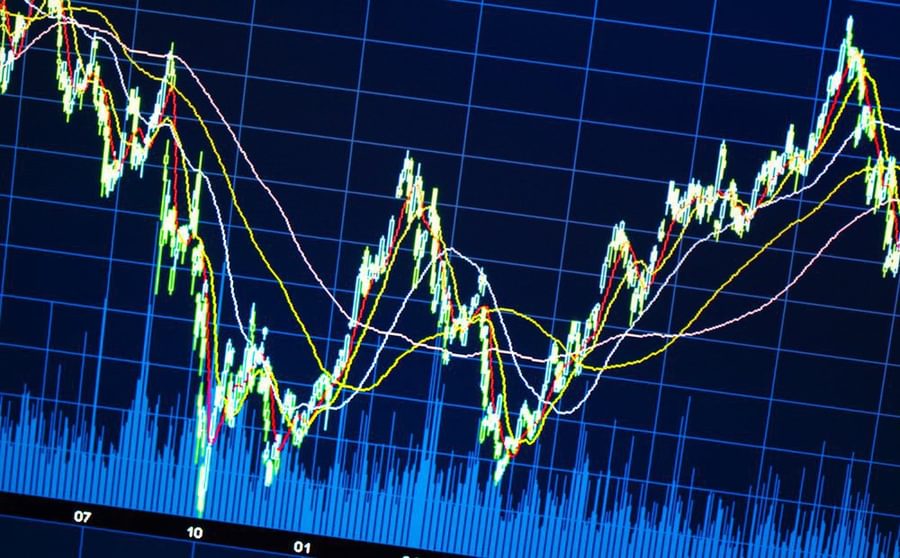Note: This information is from 2020 but much has changed since then. Please be sure to discuss your unique financial situation with your McKinley Carter Advisor or another trusted professional.

McKinley Carter Investment Update to clients for Friday, March 13, 2020
As we have seen over the past 48 hrs. with movie star Tom Hanks and his wife contracting the coronavirus (COVID-19) along with the suspension of "March Madness" and the NBA and NHL seasons, this crisis is now “real” to most Americans. Major League Baseball has suspended spring training games and Disney Parks and Universal Studios and well-known venues in New York have been closed. The point here is that all Americans are tuned into what happens to celebrities and college and professional sports as well as their local school districts and communities. What was previously a problem for “other people” has now become everyone’s problem.
While this fear of the unknown has dramatically impacted investment markets and therefore client account values, most McKinley Carter clients, as a result of close consultation with their Financial Strategists, were generally unfazed by a 10% market correction. Now that we have experienced a “bear market” with the markets dropping more than 27% from the recent highs, investor anxiety has certainly heightened. As of Thursday evening, following the largest one-day percentage drop in the stock market since "Black Monday" on October 19, 1987, the Dow Jones Industrial Average has retraced all of 2019’s gains and is sitting below the lows experienced on December 24th, 2018 at the peak of market panic related to the Federal Reserve having raised interest rates in the face of slowing economic data.
On December 24 of 2018 when the markets bottomed, the CNN Fear and Greed Index (https://money.cnn.com/data/fear-and-greed/) sat at 2 (on a 0-100 scale) where 0 is the most fearful. The index is comprised of seven market indicators that capture market behavior related to volatility, volume, credit spreads, market momentum, and recent stock vs. bond returns. As a contrarian indicator for the markets, the index is a good barometer of investor enthusiasm or pessimism. Yesterday, that indicator sat at 1 - nearly maximum fear. Does this mean that the stock market is bottoming here? No one knows the answer to this important question but we can say that the market is dramatically cheaper than it was a few weeks ago. I bring this up to point out that markets periodically become so fearful of the unknown that they discount all the bad news that is currently in the public consciousness.
While the ultimate duration of the coronavirus outbreak is currently unknown, we do know that recovery is currently underway with 70,000 people worldwide having totally recovered from the virus. In Asia specifically, there are signs of businesses returning to their prior levels of activity (e.g., Apple has reopened all 42 stores in China). The likelihood that the U.S. will experience the same type of recovery happening in Asia is high with the caveat being, in a free society, our movements are controlled less than in more “command and control” economies like China. This means we may experience a more drawn out period of recovery. That being said, it is also likely that at some point this year, the markets will begin to discount a recovery and a return to some degree of “normalcy.”
With this in mind, please reflect on the following chart as you think about your long-term investment goals. This chart shows the “risk” of letting emotions drive equity decisions and the impact of those emotional decisions on future investment returns. By timing one’s market decisions on when it appears to be “safe” to invest again, one may likely miss some of the market’s biggest recovery days. As the economy was strong (historically low unemployment and mild inflation and interest rates) just prior to the advent of the virus, we do have a bit of a cushion to weather the storm. While economic data and earnings projections will likely deteriorate from here as a result of the impact of the coronavirus, the investment markets seem to be pricing in a deep recession and have already begun the process of de-risking the stock market. If the following events take place, one can envision a dramatic recovery in the market:
As the economy was strong (historically low unemployment and mild inflation and interest rates) just prior to the advent of the virus, we do have a bit of a cushion to weather the storm. While economic data and earnings projections will likely deteriorate from here as a result of the impact of the coronavirus, the investment markets seem to be pricing in a deep recession and have already begun the process of de-risking the stock market. If the following events take place, one can envision a dramatic recovery in the market:
- Some slowdown in the transmission rate of the virus or a discovered therapeutic or even a vaccine that may be a year away.
- Rising interest rates that reflect economic optimism
- Rising oil prices that reflect economic optimism
We believe it's important to remain calm during periods of intense market volatility and to review the lessons of history regarding post-crises market behavior. This crisis, like all others, shall eventually pass and it’s critical that we guard against letting emotions drive what should be long-term investment strategies. Additionally, buying stocks into panic-induced market selloffs, especially ones caused by epidemics, has typically been a profitable decision one-year later as the economy recovers.
Please contact your Financial Strategist to discuss whether the current market pullback has an impact on your long-term financial plan.
